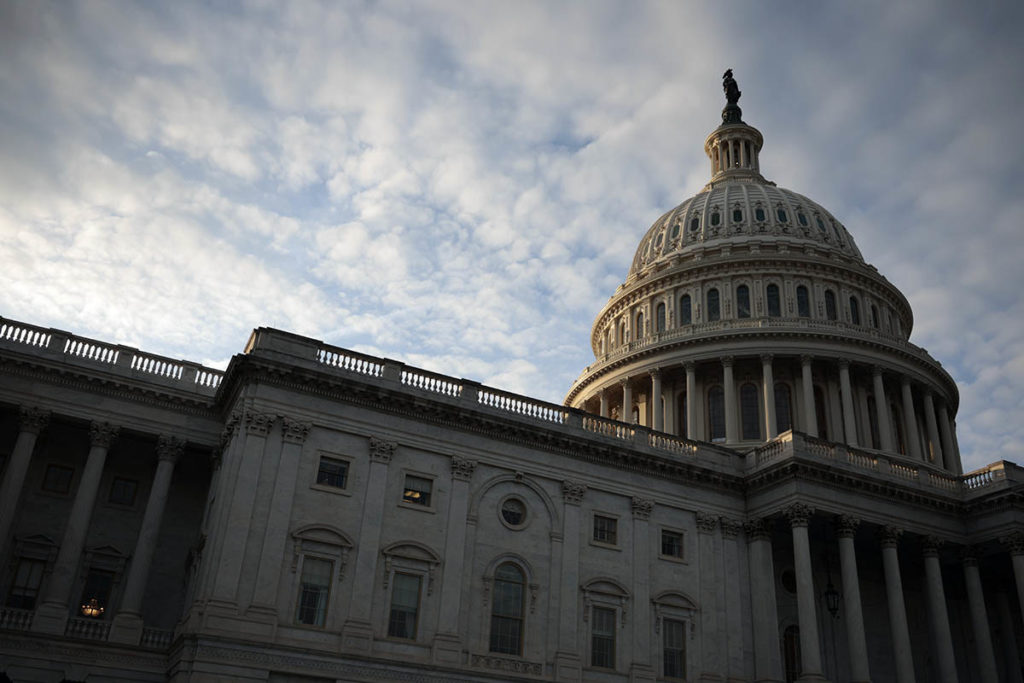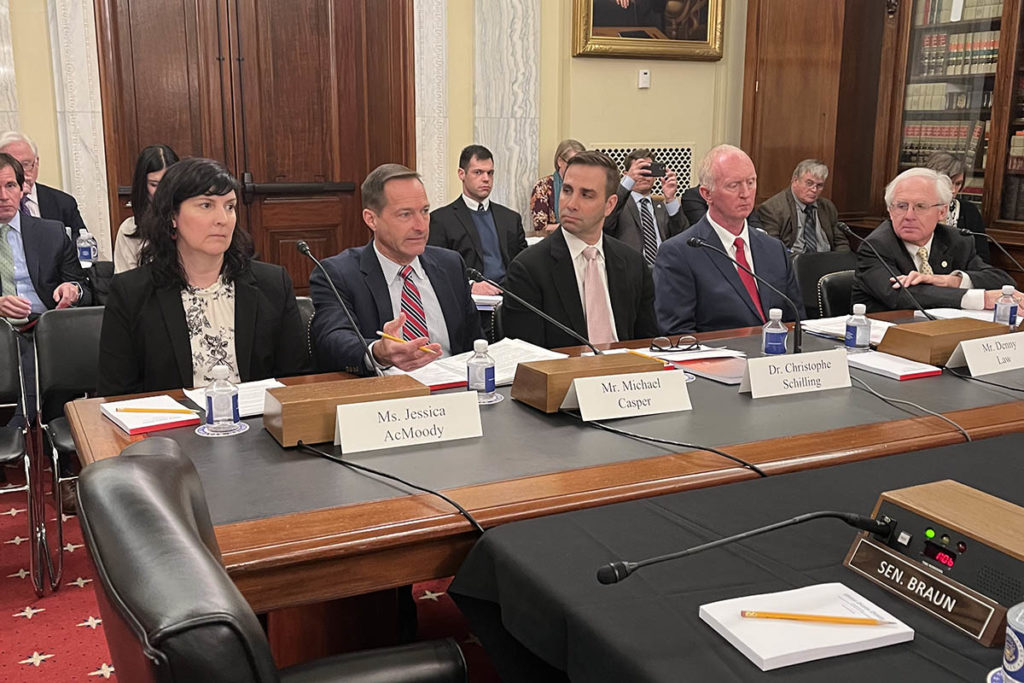
A resilient, reliable electric grid that provides affordable power is crucial for rural communities as America transitions to cleaner energy, the CEO of an Illinois electric cooperative told a Senate committee Tuesday.
“Diversity of electric generation is essential to our commitment to a lower carbon future,” Mike Casper, president and CEO of Jo-Carroll Energy, told the Senate Agriculture Committee at a hearing on the 2023 Farm Bill.
“As cooperatives look to the future, we are exploring all options, technologies and ideas to work to meet the evolving energy needs of the local communities we serve.”
Casper testified that electric co-ops are facing three key challenges:
- Responding to consumer-members’ desire for a diverse energy mix.
- Maintaining reliable baseload power as part of a lower-carbon future.
- Providing services beyond electrification, including rural broadband.
“Unlike the rest of the electric sector, electric co-ops sell the majority of their power to households rather than businesses,” Casper said. “Keeping rates down for rural families at the end of the line is especially important for JCE.”

The Elizabeth, Illinois-based co-op serves about 26,500 electric and natural gas accounts in four counties and provides high-speed internet service to more than 3,000 subscribers through its broadband division, Casper said.
The distribution co-op gets its power from two generation and transmission co-ops, Dairyland Power Cooperative and Prairie Power Inc., both of which have made substantial investments in renewable energy.
“Dairyland recently completed a large wind power purchase agreement to power 16,000 homes in addition to their current renewable portfolio that makes up over 20% of their generation mix,” Casper said. “Prairie Power is similarly investing in renewable energy through solar farm ownership and power purchase agreements for solar and wind energy.”
Jo-Carroll Energy is supplementing that power by developing three community solar arrays, which resulted from feedback the co-op received from member surveys, Casper said. The U.S. Department of Agriculture’s Rural Energy for America Program provided more than $89,000 in grants to help create one of those solar farms.
A new $9.7 billion USDA program created by Congress this year as part of the Inflation Reduction Act will also help interested co-ops build new clean energy systems by providing grants and loans for projects that include renewable energy, energy storage, carbon capture, nuclear power, and generation and transmission efficiency, Casper said.
“These programs will help co-ops meet the future energy needs of the communities they serve while providing important flexibilities to maintain reliable, affordable power in rural America,” he said.
Electric co-ops rely on funding from USDA’s Rural Utilities Service Electric Program to help pay for essential electrical infrastructure projects, Casper said. But too often, he said, RUS loan approvals are “needlessly lengthened by environmental reviews and decision delays.”
“To meet our nation’s growing electricity needs,” Casper said, “electric cooperatives would benefit greatly from reforms to the federal permitting process that maintain robust environmental protections while ensuring determinations are made in a timely manner.”
Co-ops want to continue to collaborate with Congress to help develop the next Farm Bill, Casper said.
“JCE and the rest of our nation’s electric cooperatives look forward to working together in our shared goal of powering and improving the lives of rural Americans,” he said.
Erin Kelly is a staff writer for NRECA.